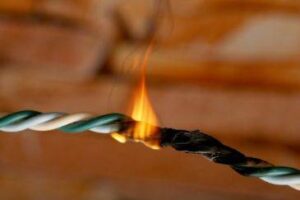In the realm of product liability lawsuits, expert witnesses play a crucial role in providing the necessary insights, analysis, and opinions to help courts and juries understand complex technical and scientific aspects of cases. Maryland, like many other states, places great emphasis on the expertise and credibility of these witnesses to ensure a fair and just legal process. Alpert Schreyer, LLC understands the significance of expert witnesses in product liability cases and is committed to providing the best legal representation possible to its clients in Maryland.
Understanding Product Liability Lawsuits
Product liability lawsuits arise when consumers are harmed or injured due to the use of a defective or dangerous product. These cases fall under the broader category of personal injury law and can involve a wide range of products, from medical devices to consumer goods. In Maryland, as in most states, product liability cases typically revolve around three main types of defects:
- Design Defects: These involve flaws or inadequacies in the design of a product that make it inherently unsafe for its intended use.
- Manufacturing Defects: These occur during the manufacturing or production process and result in a product that deviates from its intended design, rendering it dangerous.
- Marketing Defects: Also known as “failure to warn” cases, these involve situations where the product’s potential risks are not adequately communicated to consumers, leading to injuries.
The Role of Expert Witnesses
Product liability cases can be incredibly complex, often involving intricate technical and scientific details that are beyond the comprehension of the average person. This is where expert witnesses come into play. An expert witness is an individual with specialized knowledge, training, or experience in a particular field related to the case. Their role is to provide objective, evidence-based opinions that help the court and jury understand the technical aspects of the case, assess the validity of claims, and determine liability.
In Maryland, expert witnesses contribute in various ways to product liability lawsuits:
- Technical Understanding: Expert witnesses possess a deep understanding of the product, its design, manufacturing process, and its intended use. They can explain how defects may have occurred and how they contributed to the plaintiff’s injuries.
- Causation Analysis: Establishing a direct link between the defective product and the plaintiff’s injuries is crucial. Expert witnesses can analyze the evidence and provide a professional opinion on whether the product’s defects indeed caused the harm.
- Risk Assessment: In “failure to warn” cases, expert witnesses can evaluate whether the product’s warnings and instructions were sufficient to inform consumers about potential risks. They can also determine whether the manufacturer reasonably anticipated these risks.
- Comparative Analysis: Experts can compare the defective product with industry standards and regulations, helping the court determine if the product met the expected safety requirements.
- Professional Testimony: Expert witnesses provide testimony during trial, presenting their analysis and opinions in a clear and understandable manner. Their credibility and ability to communicate effectively can significantly impact the outcome of the case.
Expert Witness Requirements in Maryland
Maryland, like other states, has specific requirements for individuals to qualify as expert witnesses in product liability cases. To ensure the integrity of the legal process and maintain the credibility of expert testimony, the courts have set certain standards that these witnesses must meet:
- Qualifications: Experts must possess the necessary education, training, or experience in their respective fields. Their expertise must directly relate to the subject matter of the case. This ensures that the opinions they provide are reliable and well-founded.
- Relevance: Expert opinions must be relevant to the case at hand. Their analysis and conclusions should directly contribute to the court’s understanding of the technical aspects and help resolve disputed issues.
- Reliability: Experts must base their opinions on sound scientific principles and methodologies. Their analysis should be replicable and accepted within the relevant scientific community.
- Impartiality: Expert witnesses are expected to provide unbiased opinions. While they are often retained by one party, their primary duty is to the court, and their testimony should not be unduly influenced by the party that hired them.
- Disclosure: Both parties are required to disclose their expert witnesses and the nature of their testimony to the opposing side. This promotes transparency and allows both parties to prepare for trial effectively.
The Collaboration Between Attorneys and Expert Witnesses
In product liability cases, the collaboration between attorneys and expert witnesses is a dynamic and intricate process. Attorneys rely on these experts not only for their technical knowledge but also for their ability to convey complex concepts in a clear and understandable manner to judges and juries. This collaboration involves several key stages:
- Case Assessment: At the onset of a product liability lawsuit, attorneys work closely with potential expert witnesses to evaluate the merits of the case. Experts analyze the evidence, assess the validity of claims, and provide their initial opinions on the technical aspects of the case.
- Strategy Development: Based on the expert’s analysis, attorneys formulate a legal strategy that takes into account the strengths and weaknesses of the case. Expert input guides decisions on which aspects to emphasize during the trial and which arguments to present.
- Preparation of Expert Reports: Expert witnesses are often required to prepare written reports detailing their analysis, opinions, and conclusions. These reports provide a structured and comprehensive account of their expertise and the reasoning behind their opinions.
- Depositions: Depositions are pre-trial questioning sessions where opposing attorneys have the opportunity to question expert witnesses about their opinions, methodologies, and qualifications. This phase allows both sides to assess the strength of the expert’s testimony and identify potential areas of contention.
- Trial Testimony: The culmination of the collaboration between attorneys and expert witnesses occurs during the trial itself. Experts take the stand to present their analysis and opinions, subject to cross-examination by opposing counsel. Their ability to maintain composure, respond confidently, and communicate clearly is paramount during this phase.
- Rebuttal and Response: In response to the opposing party’s arguments, expert witnesses might need to provide rebuttal testimony to address any new information or arguments that arise during the trial.
Expert witnesses are the linchpin of product liability lawsuits in Maryland. Their specialized knowledge and insights are essential for courts and juries to make informed decisions about complex technical matters. Alpert Schreyer, LLC recognizes the vital role these experts play in pursuing justice for its clients and is dedicated to providing top-tier legal representation that leverages their expertise.
If you are facing a product liability case or need legal advice in Maryland, contact Alpert Schreyer, LLC today. Our skilled attorneys are ready to provide you with the guidance and representation you need to navigate the intricacies of the legal system.
Contact us now to schedule a consultation and learn how we can help you with your product liability case. Your rights and well-being are our priority.
